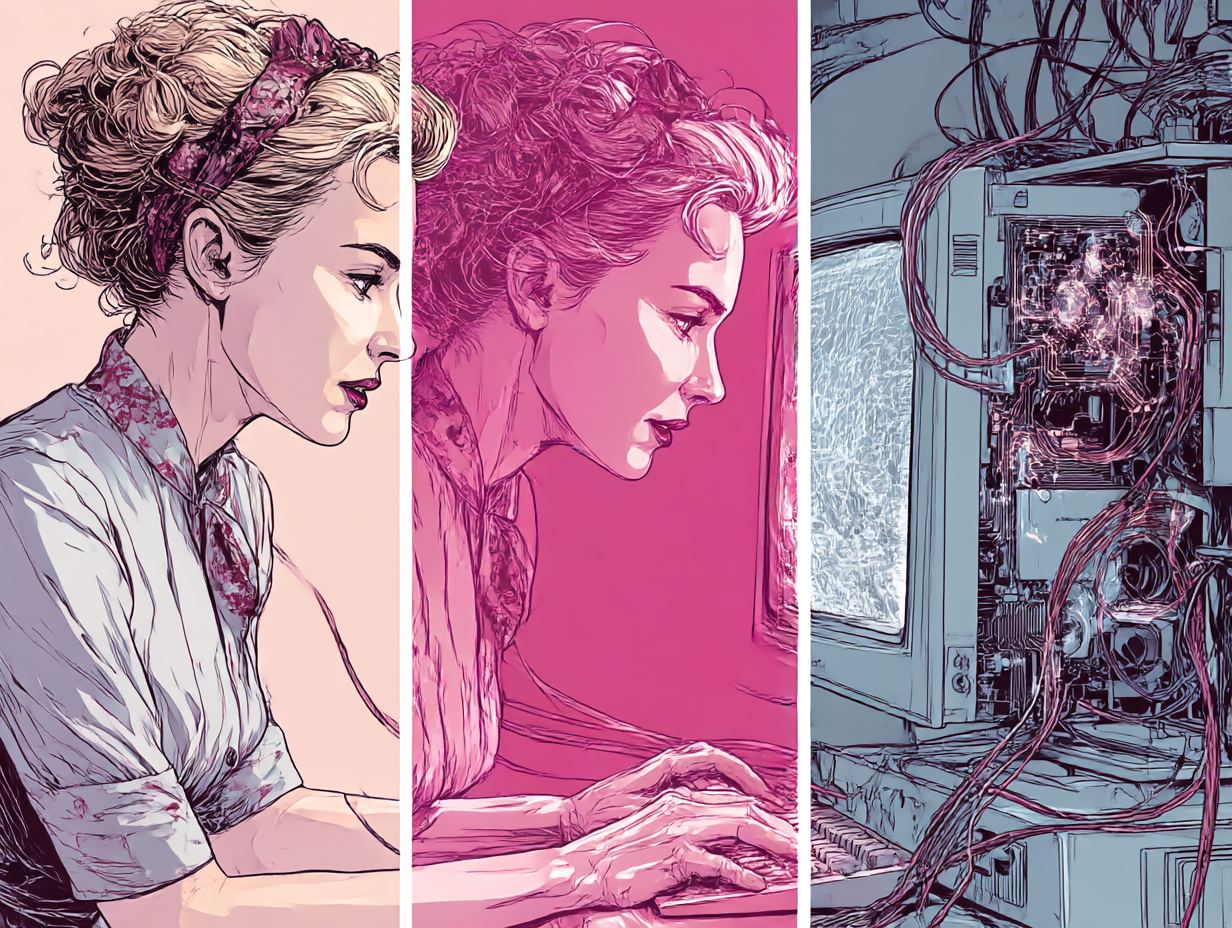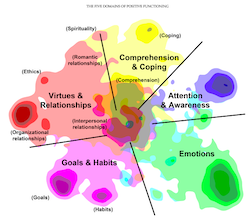Here's what I actually think about AI and your job: I have no fucking idea what's going to happen, and neither does anyone else.
All the confident predictions—from both the "AI will save us" and "AI will doom us" camps—are basically expensive horoscopes. We're living through something unprecedented while pretending we can see around corners we've never turned before.
The Uncomfortable Truth About "AI-Proof" Jobs
Every job is becoming a hybrid job, and we're all just figuring out what that means in real time.
Take that nurse everyone says is safe because of empathy and human connection. Sure, she's still the one holding your hand when you're scared. But she's also using AI to spot sepsis earlier than she could on her own, having her documentation auto-generated from voice notes, and getting alerts about drug interactions she might have missed. The emotional labor is still hers, but the cognitive load is increasingly shared.
Or the electrician who supposedly can't be replaced because AI doesn't have hands. Except now his phone can diagnose electrical problems through photos, walk him through repairs he's never done, and help him bid jobs more accurately. He's still crawling under houses, but he's doing it with an AI assistant that knows more about obscure electrical codes than he does.
The question isn't whether these jobs are "safe." It's whether these workers can adapt to being the human part of a human-AI team—and whether they'll be paid like skilled professionals or like glorified AI operators.
Nobody Knows What Skills Will Matter
Remember when everyone said "learn to code" and then GitHub Copilot started writing code? Now we're saying "focus on creativity and emotional intelligence" while ChatGPT writes surprisingly decent poetry and therapy apps get better at active listening.
The skills that seem untouchable today might be commoditized next year. The skills that seem irrelevant might become critical. I used to think my weird ability to translate between technical and non-technical people was just a quirky side effect of my brain. Now it's literally how I make a living.
Here's what I suspect will matter: not any specific skill, but the ability to figure out what's needed as the landscape shifts. The people who'll thrive aren't necessarily the most talented—they're the most adaptable.
The Real Disruption Is Economic, Not Technical
AI might not take your job, but it might make your job worth less.
If AI can do 70% of what a graphic designer does, companies might decide they only need one designer instead of three. The remaining designer gets to do the "human" parts—strategy, client relationships, creative direction—but they're also managing three times the workload for not much more pay.
This is already happening in journalism, where reporters are expected to do everything—write, edit, manage social media, shoot video, analyze metrics—because digital tools made it technically possible. Being "irreplaceable" doesn't mean being valued.
The Advice Industrial Complex Is Lying to You
All those confident predictions about which careers are safe? They're based on the assumption that technological change is predictable and that the economy will adapt rationally. Both assumptions are questionable.
We don't know if AI will plateau, breakthrough to something unimaginable, or just get stuck being really good at some things and terrible at others. We don't know if companies will use AI to augment human workers or replace them wholesale. We don't know if new jobs will emerge fast enough to absorb displaced workers, or if they'll pay enough to matter.
What we do know is that every previous technological revolution created massive disruption before settling into a new normal. Some people thrived, some adapted, and some got left behind. The people who thrived weren't necessarily the smartest or most skilled—they were often just lucky, well-connected, or quick to spot opportunities.
So What Do You Actually Do?
Stop looking for the secret formula and start building the kind of life that can handle uncertainty.
That means financial resilience—not just emergency funds, but multiple income streams and skills that transfer across industries. It means social resilience—relationships and networks that can help you pivot when things change. It means psychological resilience—getting comfortable with not knowing what comes next. (I wrote about this in my first book, Can You Learn to Be Lucky?)
It also means paying attention to what's happening in your specific field, not what tech bros or career coaches say is happening in general. The AI that's coming for radiologists is different from the AI that's coming for teachers, which is different from the AI that's coming for lawyers. Generic advice is useless.
Most importantly, it means accepting that we're all just making this up as we go along. The people who seem confident about the future? They're either lying or delusional. The rest of us are just trying to stay curious, adaptable, and sane while the world changes around us.
The Only Honest Prediction
In ten years, some jobs will be gone, some will be transformed beyond recognition, and some new ones will exist that we can't imagine yet. Some people will be better off, some will be worse off, and most will be doing something different than they are today.
That's not comforting, but it's honest. And maybe honesty about uncertainty is more useful than false confidence about the future.
The best career advice might just be: stay curious, stay flexible, and don't trust anyone who claims to know what's coming next.
Because if they really knew, they'd be too busy getting rich off that knowledge to write about it.
Stay Informed and Inspired
Join our community of forward-thinkers and gain insights into AI communication and storytelling. Subscribe to our newsletter for the latest updates and exclusive resources.





